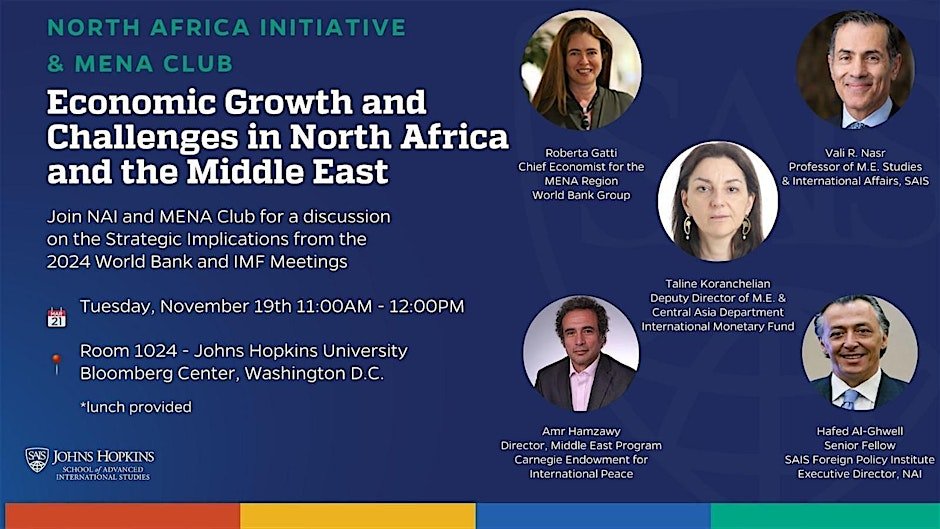The North Africa Initiative (NAI) of the SAIS Foreign Policy Institute, in collaboration with the SAIS MENA Club, is pleased to invite you to an expert-led discussion on the outcomes of the recent World Bank and IMF Annual Meetings, with a particular focus on the implications for North Africa and the broader Middle East. This event will provide a rigorous analysis of the current economic landscape and forward-looking perspectives on the roles of the World Bank and IMF in navigating persistent challenges within the region, including insecurity and economic instability.
To attend in-person, please RSVP on Eventbrite.
Or, you can watch the livestream on YouTube. No registration required.
Discussion topics will include:
World Bank Group/IMF Economic Outlook for MENA: An overview of the recently published economic forecast for the Middle East and North Africa following the 2024 Annual Meetings, with particular attention to key findings and anticipated trends.
Political Economy and Regional Dynamics: A thorough examination of the political economy of the MENA region, assessing the impact of this year’s World Bank and IMF findings amidst ongoing regional conflicts and structural challenges.
Egypt as a Case Study: A focused analysis of Egypt’s economic conditions, highlighting how recent policies and decisions from the World Bank and IMF are influencing both the broader region and North Africa in particular.
Welcome Remarks
Professor Vali Nasr, Majid Khadduri Professor of Middle East Studies and International Affairs, Johns Hopkins University School of Advanced International Studies (SAIS)
Speakers
Dr. Roberta Gatti, Chief Economist of the Middle East and North Africa (MENA) region, World Bank Group
Ms. Taline Koranchelian, Deputy Director in the Middle East and Central Asia Department, the International Monetary Fund (IMF)
Dr. Amr Hamzawy, Director of the Middle East Program, Carnegie Endowment for International Peace
Hafed Al-Ghwell (moderator), Executive Director of the North Africa Initiative and Senior Fellow at the Foreign Policy Institute of the Johns Hopkins University School of Advanced International Studies
